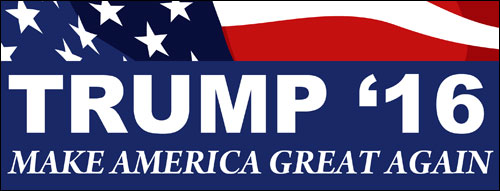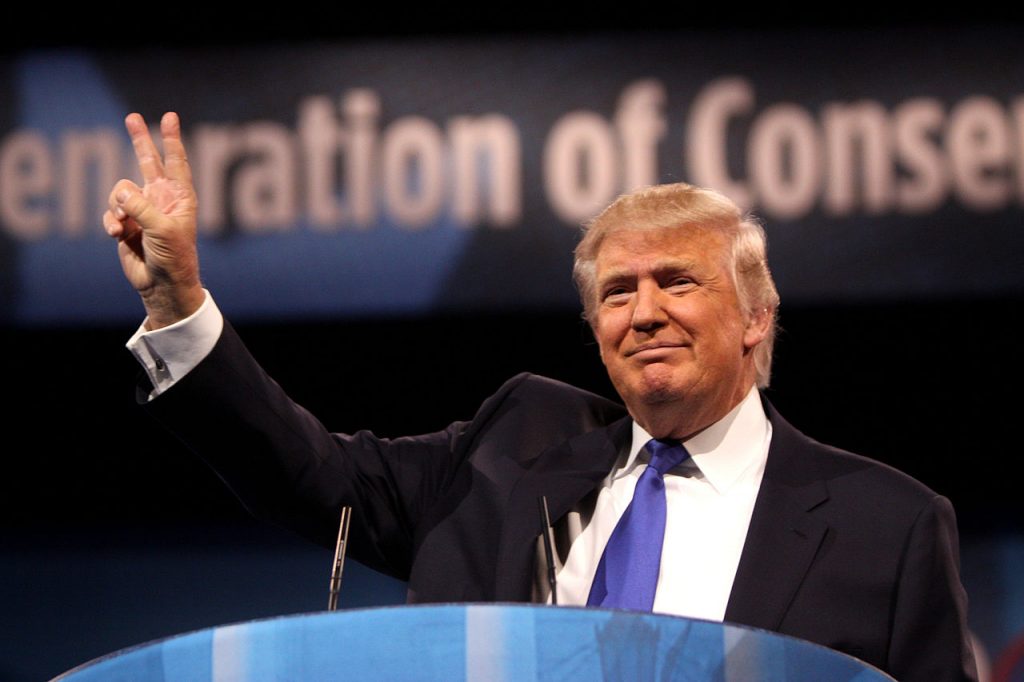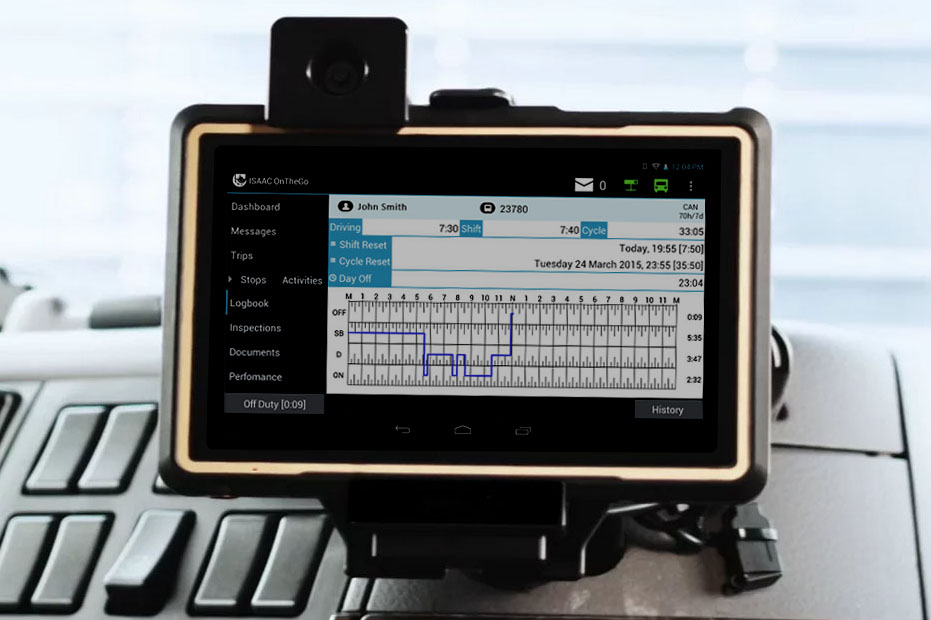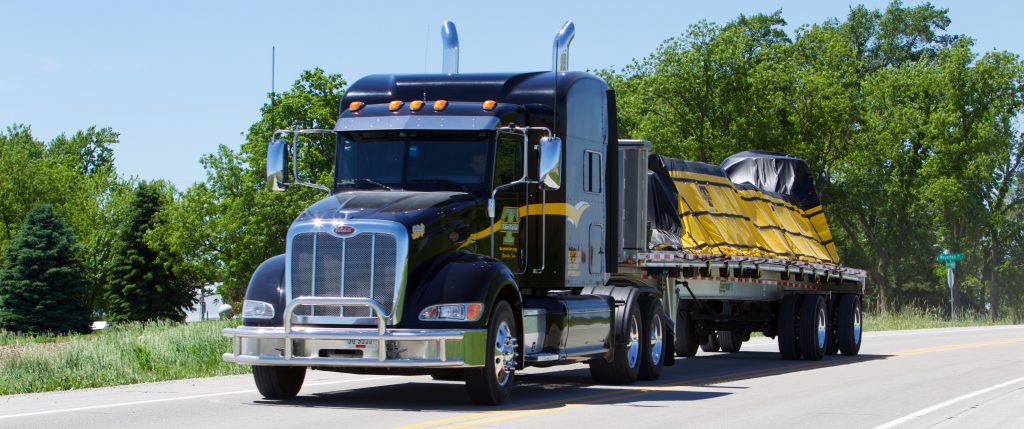
Ten transportation issues to watch under Trump
TanTara Transportation knows the challenges and obstacles that truck drivers face, and most regular motorists just can’t understand. Severe weather conditions, oversized loads, long hours, and government trucking and transportation rules are just a few of the issues you must contend with on a regular basis.
The trucking industry is subject to a whole host of government regulations. In Donald Trump, they saw a candidate who supported a less stringent and much more accountable regulatory climate. So, it was no surprise that when Trump ran for President, a majority of trucking firms supported him. In fact, in a poll taken last July 2016 by Overdrive magazine, 75 percent pledged to vote for Trump.

Now that Trump is POTUS, truckers and OTR trucking companies are talking about changes that may be in store under Trump’s leadership. As the industry that moves more than 70 percent of the nation’s freight, truckers are watching and waiting to see how Trump will impact their operations.
Some analysts believe that Trump may be a regulatory reformer. But to what extent can he alone change the industry? As the nomination process continues, it will be interesting to see what impact Trump’s appointees and his administration will have on the transportation industry. Let’s look at a roundup of recent news stories:
Regulations on Hold
Following the lead of other presidents, last month Trump ordered a freeze on all new agency regulations. The move is an opportunity for his team to review and vet rules set by the previous administration. However, any regulations regarding health, safety, financial or national security matters—such as the transportation’s mandated electronic logging devices—were not halted.

Trump also challenged federal agencies to pare down the fat. On January 30, he issued an order: “Reducing Regulation and Controlling Regulatory Costs.” For every new regulation they propose, he wants them to do away with two they’ve already created. So if the FMCSA, for example, proposes a new rule, they need to be willing to repeal two that are already on the books. Trump argues that fewer regulations are better for small businesses.
On February 8, two agencies fought back. Public Citizen, the Natural Resources Defense Council and the Communications Workers of America filed a complaint with the U.S. District Court for the District of Columbia. They say this type of order cannot be lawfully implemented.
The plaintiffs argued that “The Executive Order exceeds President Trump’s constitutional authority, violates his duty under the Take Care Clause of the Constitution, and directs federal agencies to engage in unlawful actions that will harm countless Americans, including plaintiffs’ members.”
Do you believe the new administration will continue to challenge regulations for the trucking industry? How do you feel about regulations?
Trump Temporarily Tracks Trucker Training
In a move much like the regulation order above, Trump halted publication of freshly minted regulations. One of these rules covers the training methods of new truck drivers.
On December 8, 2016, FMCSA published its entry level driver training regulation. The rule set up classroom hours for anyone trying to attain their CDL. It also (originally) required a minimum of 30 hours of experience behind the wheel for truck driving jobs.
For their part, the Owner-Operator Independent Drivers Association argued the rule was not in the public interest as it did nothing to further safety beyond what was currently in place.
The Trump administration has asked the FMCSA to postpone the effective date of Feb. 6, 2017 by 60 days. His officials would like to review the rules and make changes, if necessary.
What do you think of current driver training rules? Do you think new truck drivers need more or less time behind the wheel? What should drivers know before being hired? What would you have changed about your own truck driver training? Let us know in the comments below or on Facebook.
Darling Steps Down; Who’s up Next?
A fierce defender of the transportation industry, Scott Darling said goodbye last month. As the former head of DOT’s Federal Motor Carrier Safety Administration (FMCSA), Darling has said “Trucks are the key linchpin to make sure this economy moves forward.” He believes safe trucking is critical to our U.S. economy.
In her confirmation hearings, Transportation Secretary nominee Elaine Chao concurred, saying “Transportation is the underpinning of the greatest economy in the world.” However, she also spoke of the need to embrace emerging technologies and new innovations.
If she and the administration support drone delivery and self-driving/automated vehicles, how will this affect your job as an Iowa oversized load truck driver in the short- and long-term?
Smile: You’re on Candid Camera
Bus drivers use them. Police officers have them in their cruisers. Now some trucking companies—including Eagle Transport, H&W Trucking, Associated Grocers, and AM Express—are putting cameras in truck cabs. These trucking executives argue that installing cameras will improve driver performance and protect drivers in case of accidents.
“There needs to be good communication and driver involvement leading up to deployment of cameras,” says Gary Falldin, vice president of safety and security for Transport America. “There are many misperceptions of how and when the cameras are used.”
Many drivers, however, see them as an invasion of privacy. Has your employer implemented driver cameras? If yes, what reasons did they list for installing them? If you don’t have a camera in your truck cab, how would you feel having one installed?
Slow Down; We’re Watching
The Department of Transportation (DOT) would like to monitor your truck driving speed. Specifically, they’ve proposed electronically limiting your speed to 60-68 miles per hour. In addition to boosting safety, the DOT argues that a speed limit would save fuel and lower greenhouse gas emissions.
However, the American Trucking Associations rejects their strict speed limiter mandate. They say the DOT fails to present clear data and doesn’t clarify which of the three speed limits (60, 65, or 68) it would require.
In any event, Trump’s freeze on regulations may render all this a moot point. His administration may not continue the development of the speed limiter mandate.
When it comes to truck driving, do you think there should be electronic monitoring of your speed? If so, who should have access to that information: the government or your employer?
Better Roads; But Who Will Pay?
President Trump is on record for supporting strong infrastructure. That’s good news for transportation and trucking companies.
“During the campaign, he highlighted the need to create jobs, and recognized that improving our nation’s infrastructure is critical to strengthening the economy,” said American Trucking Associations President and CEO Chris Spear.
Trump has proposed spending $1 trillion on infrastructure development. Though he has discussed other transportation plans—including mass transit and high-speed trains—he continues hammering home on the nation’s infrastructure.
During his victory speech, Trump said: “We’re going to fix our inner cities and rebuild our highways, bridges, tunnels, airports, schools, hospitals. We’re going to rebuild our infrastructure, which will become, by the way, second to none.”
‘Second to none’ sounds pretty darn good, but truck driving companies are unclear what portion of money or amount of assistance they will receive under the Trump administration. Therefore, some predict privatization and that the trucking industry will need to help foot the bill for better roads. Analysts believe this will come in the form of tolls or higher taxes on fuel.
Trump has said he’d like to offer tax incentives to private businesses so they will invest in infrastructure projects.
Who do you believe should pay for improving our highways? How will higher tolls and fuel taxes affect the company where you work?
Electronic Logging Devices Still a Go?
In a law passed in December 2016, trucking companies and carriers were told they have two years to comply with standards for electronic logging devices (ELD’s).

According to Section 395.26 of the rule, ELD’s are intended to record the following data
elements at certain intervals: date; time; location information; engine hours; vehicle
miles; and identification information for the driver, the authenticated user, the vehicle,
and the motor carrier.
It’s unlikely that Trump will change the rules for ELD compliance, according to
Lane Kidd, head of the carrier coalition the Trucking Alliance. Kidd says the ELD rule was mandated by Congress back in 2012. “To roll back Congressional actions — that would be far-fetched,” he says.
Have you read our previous blog “Electronic Logs (E-Logs) For Truck Drivers“?
Has your company begun using ELD’s? Do you believe Trump or the new administration will change the mandate in any way?
In the Air: Emissions Laws
The Environmental Protection Agency (EPA) finalized regulations for tractor-trailer emissions. The rules are set to become effective this year, with plans to phase in new standards up until 2027.
Industry lobbyists and leaders will try to engage Trump on Phase 2 of these regulations. Their hope? That the Trump administration can study the regulations and/or extend the decade-long process for implementation.
According to Kidd, “I can see where Congress could roll back or stall regulations initiated at the agency level. There’s a chance, but whether there’s probability — that’s the big question.”
How do emissions standards affect the bottom line at your transportation company? Do you believe the administration should take a second look at the EPA regulations?
After NAFTA?
During his campaign, Trump pledged to renegotiate the North American Free Trade Agreement (NAFTA).
“NAFTA has been a catastrophe for our county,” says Trump. “I don’t care if it’s a renovation of NAFTA or a brand-new NAFTA, but we do have to make it fair and it’s very unfair to the American worker and very, very unfair to companies.”
Trucking, by its very definition, relies on imports and exports. Truckers move the majority of goods between Canada, the U.S., and Mexico. Some believe changing NAFTA could lead to a trade war or a recession. In the case of a recession, the trucking industry is one of the first to be affected.
To change NAFTA, Trump will need the backing of Congress. Since both houses are pro-trade, a change seems unlikely at this time. But that doesn’t mean the trucking industry isn’t concerned.
What affect would a NAFTA renegotiation have on the U.S. economy? How would changing this trade deal impact your job as a OTR truck driver?

The Future
What does the trucking industry look like under a Trump presidency? If Trump builds a wall along the Mexican border, how will that affect your routes and shipping lands?
TanTara Transportation welcomes your comments and feedback in the section below. Tell us what’s on your mind.